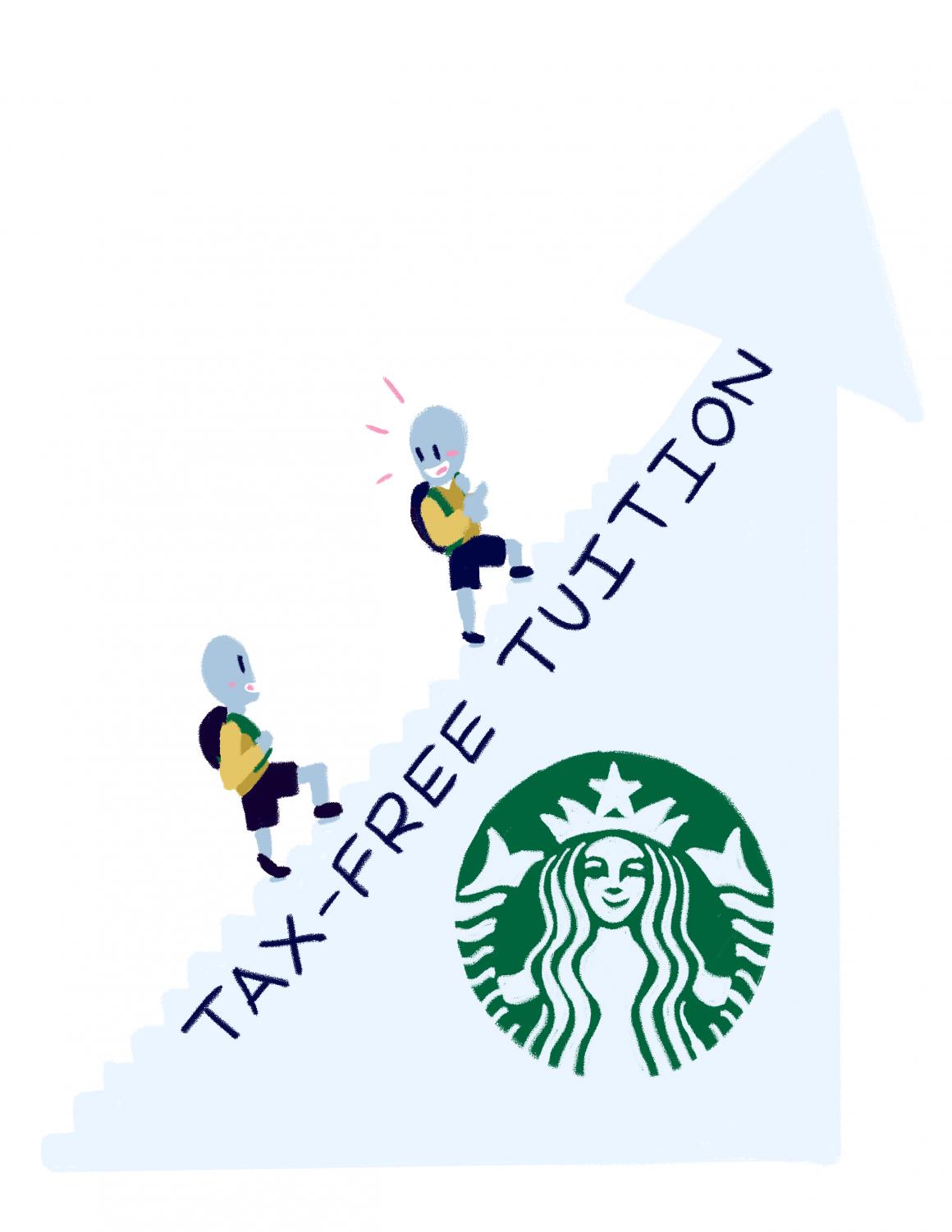One venti college degree to go, hold the crushing student debt
November 8, 2019
 The cost of education would have put Olivia Williamson in an estimated $40,000 of debt, but because of the Starbucks College Achievement Plan, Williamson attended Arizona State University online for three semesters and will graduate from the University of North Carolina Wilmington with only $10,000 in debt.
The cost of education would have put Olivia Williamson in an estimated $40,000 of debt, but because of the Starbucks College Achievement Plan, Williamson attended Arizona State University online for three semesters and will graduate from the University of North Carolina Wilmington with only $10,000 in debt.
Williamson was reimbursed $2,000 by Starbucks each semester to cover tuition. She was able to avoid having to pay any taxes on her tuition assistance and said the payments eased the burden and stress of paying for college.
“Pulling out a whole bunch of loans wasn’t really that enticing,” she said.
The program pays a student’s full tuition for online classes at Arizona State University if they work 20 hours per week at Starbucks.
Under current tax law, students accepting more than $5,250 in tuition assistance from employers will pay taxes on the assistance, although this did not apply to Williamson.
Rep. Danny K. Davis (D-Ill.) and Rep. Jason Smith (R-Mo.) introduced legislation Oct. 23 to increase the cap on tax-free education assistance employees can accept up to $11,500.
In 1986, Congress amended the tax code to allow businesses to contribute up to $5,250 in tuition assistance for employees before taxes would be taken out. But with the soaring costs of college compared to 1986, and accounting for inflation, the tuition assistance would not cover as much of tuition as it used to, Davis said.
Davis introduced the legislation because he said student debt is among the biggest problems that exist for students pursuing higher education.
“Any way we can enhance the opportunities to pursue higher education is, of course, worth it,” Davis said.
He meets many people with so much student debt that even though they have jobs, their income is hardly enough to cover monthly loan payments, Davis said.
The legislation could also benefit companies. As it stands, a company giving more than the current $5,250 per employee participant cannot write off the contribution on its taxes, according to a May 30 article by Society for Human Resource Management—a group that helped craft the legislation. Contributions above the cap are considered income for the employee.
“Providing tax-free education assistance is an important tool for furthering higher education,” said Chatrane Birbal, director of policy engagement for SHRM, in the article.
According to the article, 8% of companies offer taxable tuition assistance for employees.Chipotle offers one such assistance program.
Briscel Martinez, senior communication major at Columbia, worked for Chipotle and considered joining its Cultivate Education benefits program, but it only offered educational assistance to certain majors—none of which she wanted to pursue. So she decided against it. She said she does not know anyone who currently works for a company that helps ease the heavy burden of tuition.
Both Chipotle’s and Starbucks’ programs offer full tuition coverage to specific schools—not including Columbia—but the average cost of tuition is generally more than the current $5,250 cap.
The average cost of in-state tuition at a public school is $10,116 per academic year, according to a 2019 U.S. News & World Report study. The average cost of tuition at a public and out-of state school is $22,577, and it is $36,801 for private colleges.
“It is an incentive, quite frankly, to get the best employees and to also assist those employees,” Davis said. “Education is a premium. Education is the key.”
Correction 11/14/19 at 3:54 p.m.: A previous version of this article said Starbucks partnered with the University of Arizona. Starbucks actually partners with Arizona State University. The Chronicle regrets this error.







